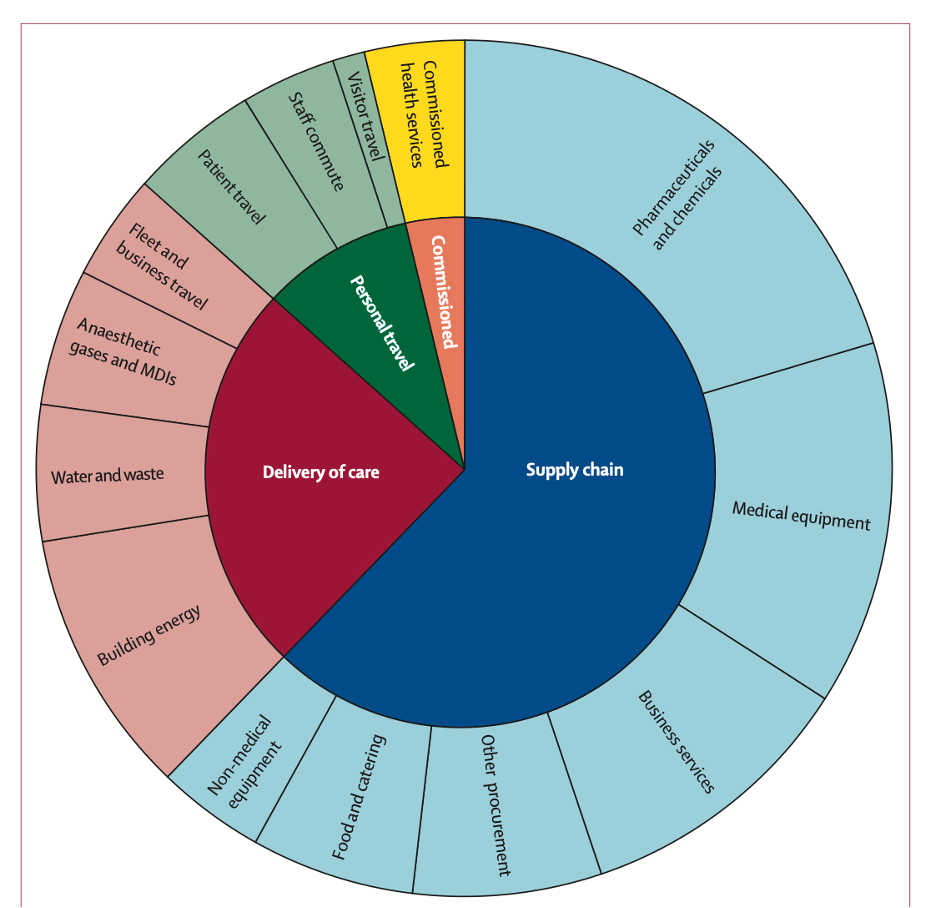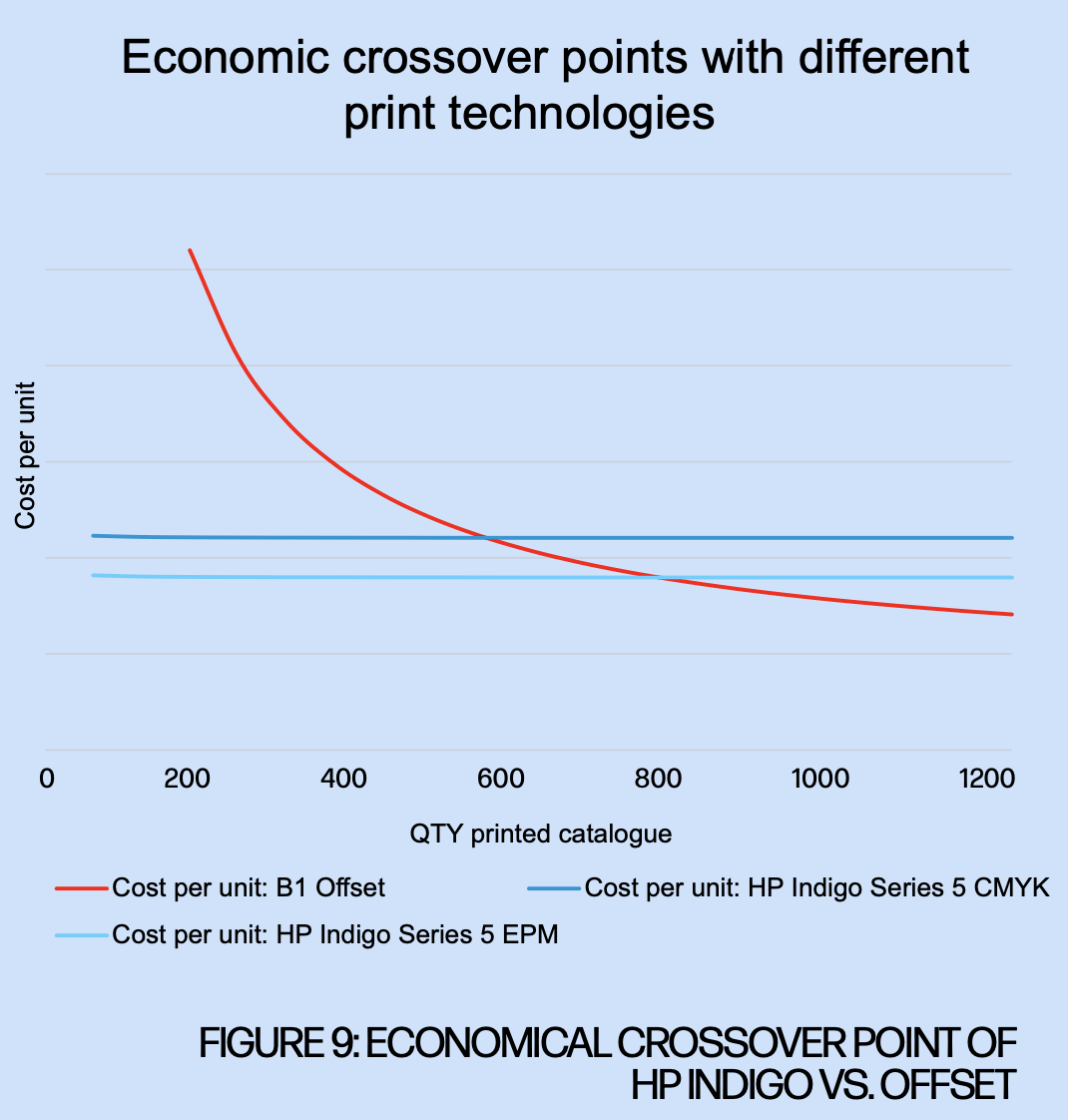July 2024 The Shift e-newsletter
LCA of Healthcare Webinar | LCA in Healthcare Trends | HP Commercial Print LCA | Upcoming Training
Free Webinar:
Healthcare LCAs: Data, Action,
Controversies, and Direction
DATE: July 18, 2024
TIME: 1pm-2pm ET
PRESENTER:
Dr. Cassandra Thiel
Assistant Professor at New York University in the Grossman School of Medicine’s Departments of Population Health and Ophthalmology and the Tandon School of Engineering’s Department of Civil and Urban Engineering
DESCRIPTION:
Healthcare globally emits nearly 5% of GHGs annually and consumes 10% of extracted materials. This critical sector is really starting to embrace LCAs and climate action. Our brown bag lecture today will focus on how clinicians are currently utilizing LCA studies and data, where controversies have emerged in this space, and future directions for LCA inspired by the needs of the healthcare sector.
PRESENTER BIO:
Dr. Cassandra Thiel is an Assistant Professor at New York University in the Grossman School of Medicine’s Departments of Population Health and Ophthalmology and the Tandon School of Engineering’s Department of Civil and Urban Engineering. She is also the president and CEO of Clinically Sustainable Consulting LLC.
Her research utilizes life cycle assessment and principles of industrial ecology to analyze and improve the environmental performance of medical systems, hospital design, healthcare practice, and medical technologies.
As a 2014-2015 Fulbright-Nehru Academic and Professional Excellence fellow, Dr. Thiel calculated the environmental footprint of cataract surgery at Aravind Eye Care System in southern India, finding that Aravind’s carbon footprint for phacoemulsification was 5% of the same surgery done in the United Kingdom. She received her PhD from the University of Pittsburgh and BS from Michigan Technological University, both in Civil Engineering. Her graduate training was supported by the Mascaro Center for Sustainable Innovation and an NSF Integrative Graduate Education and Research Traineeship (IGERT).
Healthcare Organizations Increasingly Concerned About Their Own Climate Change Impacts
With LCA interest surging in the global healthcare sector, EarthShift Global analysts see growing need for targeted, strategic research

Figure 1 - Contribution of different sectors to the greenhouse gas emissions of the NHS England, 2019, from “Health care’s response to climate change: a carbon footprint assessment of the NHS in England.” (“MDIs” refers to metered-dose inhalers)
Healthcare systems around the world have a unique perspective on the human impacts of climate change, and within the sector there is a rapidly growing desire to better understand and reduce the sector’s own contributions to the problem.
“There’s tremendous attention on this, because research has shown that healthcare accounts for approximately 5 percent of global warming contributions in the US and Canada,” largely through generation of greenhouse gases (GHGs) and waste, explains Nathan Ayer, EarthShift Global’s director of research.
Nathan and technical sustainability analyst Zeynab Yousefzadeh recently completed a study for the University of Toronto’s Institute of Health Policy, Management and Evaluation, “Scan and Synthesis of Current and Future Climate Accountabilities for Canada’s Health Sector.”
“We found many healthcare organizations are making commitments to reduce their emissions and trying to figure out what levers they can pull, and many are developing internal life cycle assessment (LCA) capabilities because there’s a lot of LCA research being done to answer those questions,” says Nathan. “Data is critical to the LCA research and data gaps can be a major issue, so suppliers and manufacturers are increasingly being asked for numbers as organizations try to get out ahead of the curve.”
While this is an encouraging development, Nathan points out that a piecemeal bottom-up LCA approach may not be optimal for problem-solving. “It’s a bit of a wild rush for LCA in healthcare” he says. “With limited resources we should be more strategic, and work out how to target research to provide answers to the larger group and meet the big needs without everyone having to do their own study.”
Nathan notes that Scope 3 supply-chain impacts are dominant in healthcare, which suggests that systemic action will be crucial; Figure 1 shows relevant findings from the UK’s National Health Service’s groundbreaking 2021 carbon footprint assessment. “Hospitals have onsite emissions from things like energy generation, incineration, and anesthetic gases, but the biggest part of their footprint is Scope 3, including GHGs and all the disposables they buy. There’s a lot of analysis being done to get a handle on the biggest contributors and find alternatives to single-use items.
HP Releases Comparative LCA of Commercial Indigo Printing vs. Offset

Source: HP Commercial LCA, Figure 9
EarthShift Global recently partnered with HP on the completion of an LCA comparing HP's Indigo print process to conventional offset printing. The findings are shared in a white paper based on a peer-reviewed full LCA report completed in December 2023, and aims to highlight the environmental sustainability facts as well as differences between analog printing technology and HP Indigo digital print production.
According to HP, "HP Indigo is one of the world’s leading digital printing solution providers for the graphic arts industry. Founded in 1977, the company develops advanced technology to drive digital print growth which enables Print Service Providers (PSPs) and brands to become market leaders. Our high-tech digital presses are designed to meet today’s and tomorrow’s needs for printing sustainably, personably, securely, and immediately. HP Indigo creates lasting value by integrating sustainable solutions into the entire value chain, from sourcing materials to the printed product to recycling, using digital attributes to propel a more sustainable future."
This was the second white paper HP developed with EarthShift Global related to HP's Indigo print process. To access these and other white papers, click on the link below.
Upcoming Online Training
Social Impact Assessment, Sustainability-ROI
September 11-12, 2024
Impact Assessment Methods
September 18, 2024
Introduction to Sustainable Return on Investment (S-ROI)
September 18, 2024